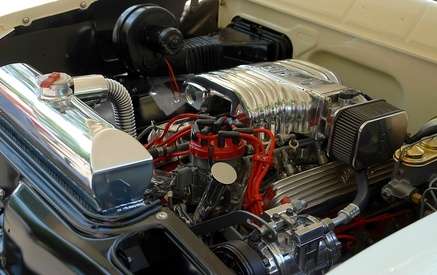
Some car owners replace a tired old engine because it has run to the end of its natural life. Car enthusiasts may swap their engine with a bigger or upgraded option that makes the vehicle drive faster. California's engine swap laws lay down the rules for replacing your car engine and are administered by the California Environmental Protection Agency.
A straight engine swap for an identical power unit comes under California's "replacement engine" laws. All such swaps must involve identical engines, with no modifications. If the replacement block comes without emissions equipment, then this must be removed from the original engine and installed on the new unit. Any difference between the two engines renders the swap invalid under replacement engine rules and instead the car owner must meet guidelines for "engine changes." Engines imported from Japan can be used for replacement engine swaps in California. They must be "functionally identical" to the block that comes out of the car. California has a list of engines that are identified as legal to be used for such swaps.
An engine change involves swapping a car engine with another that is not identical, under California law. The state insists that the newly-installed block must be the same age or newer than the one coming out of the car. It must be from the same type of vehicle, such as a passenger car or light duty truck. If the car is California-certified then the engine going in to the car must also be California-certified. Car owners must make sure an engine change does not increase pollution levels, according to California's Air Resources Board. Car owners must submit their car for inspection after an engine change takes place. This is carried out at a state referee station where the vehicle is subject to an emissions test and checked to see that all required equipment is where it should be under California law.
If you own a vehicle that was made before California introduced its strict emission laws then your car is exempt. This means owners of old classic imported cars and vintage U.S. models do not have to comply with the engine swap laws for more modern vehicles. California calls these older cars "uncontrolled" vehicles. They include all foreign-made vehicles from 1967 and earlier, all U.S.-made vehicles certified in California that were manufactured in 1965 or before, and all U.S.-produced cars certified federally that were made in 1967 and before.